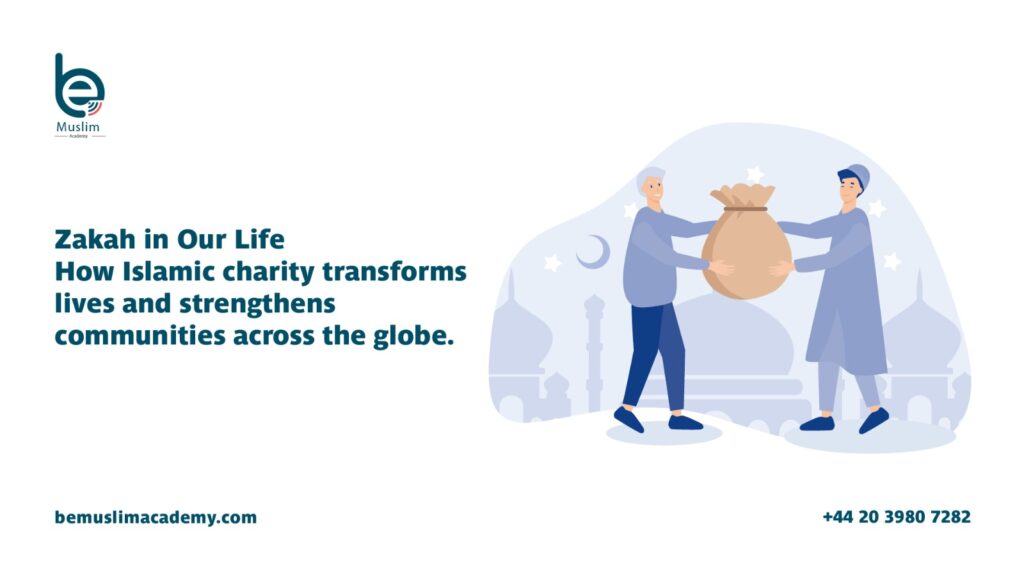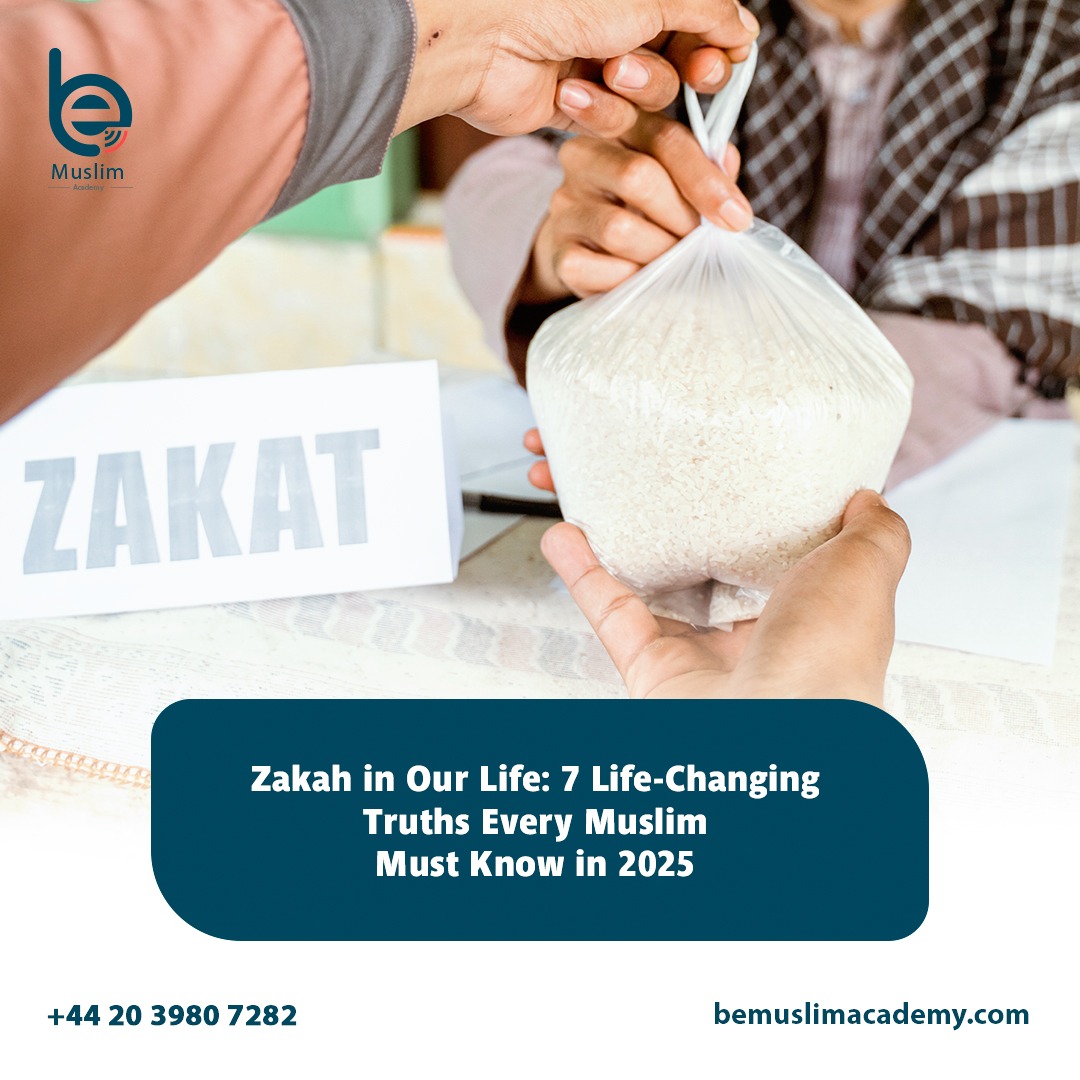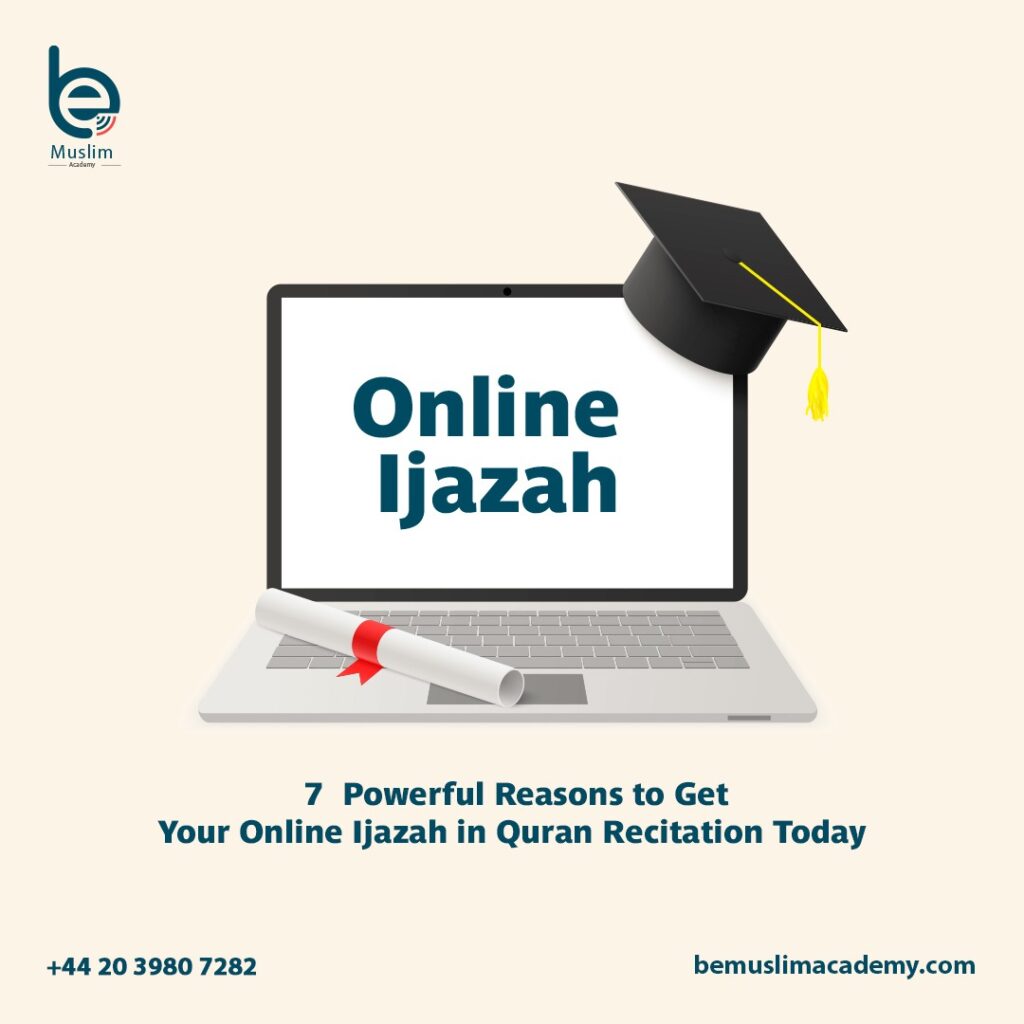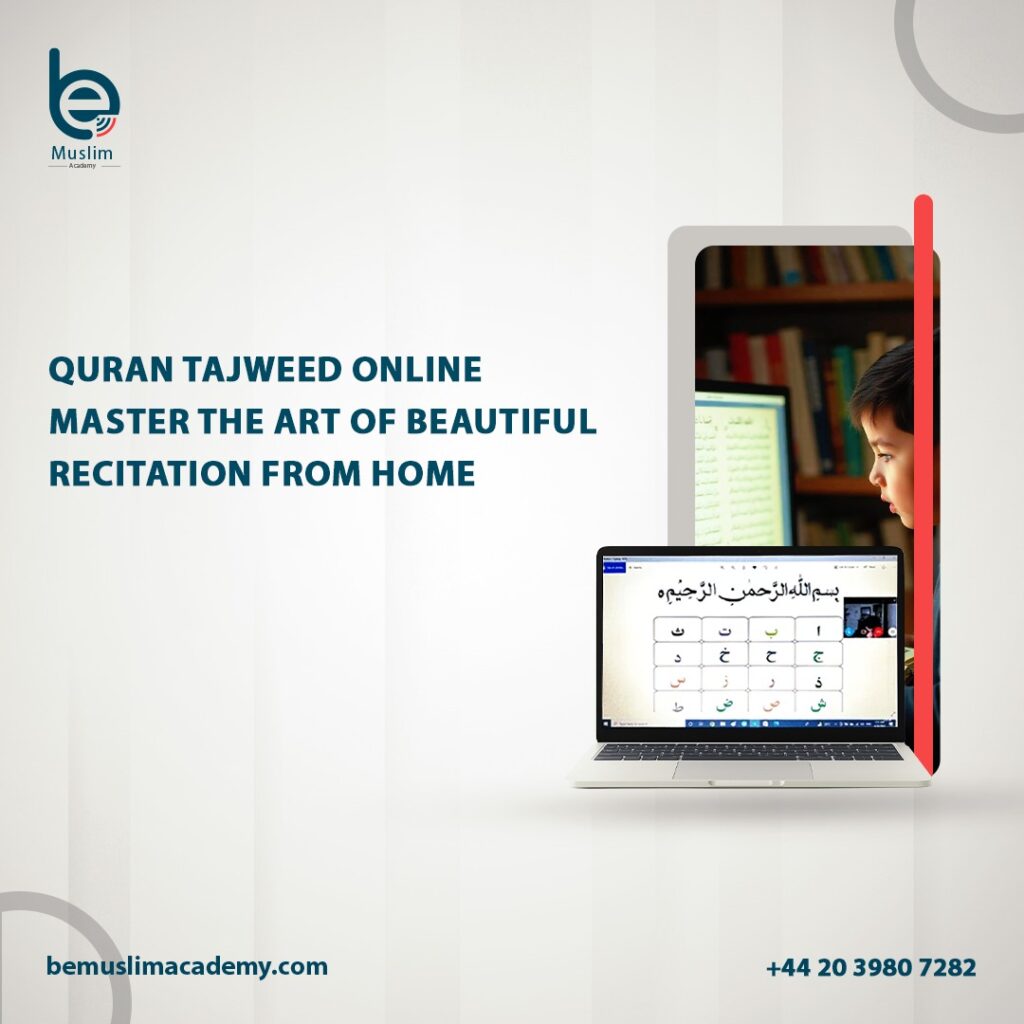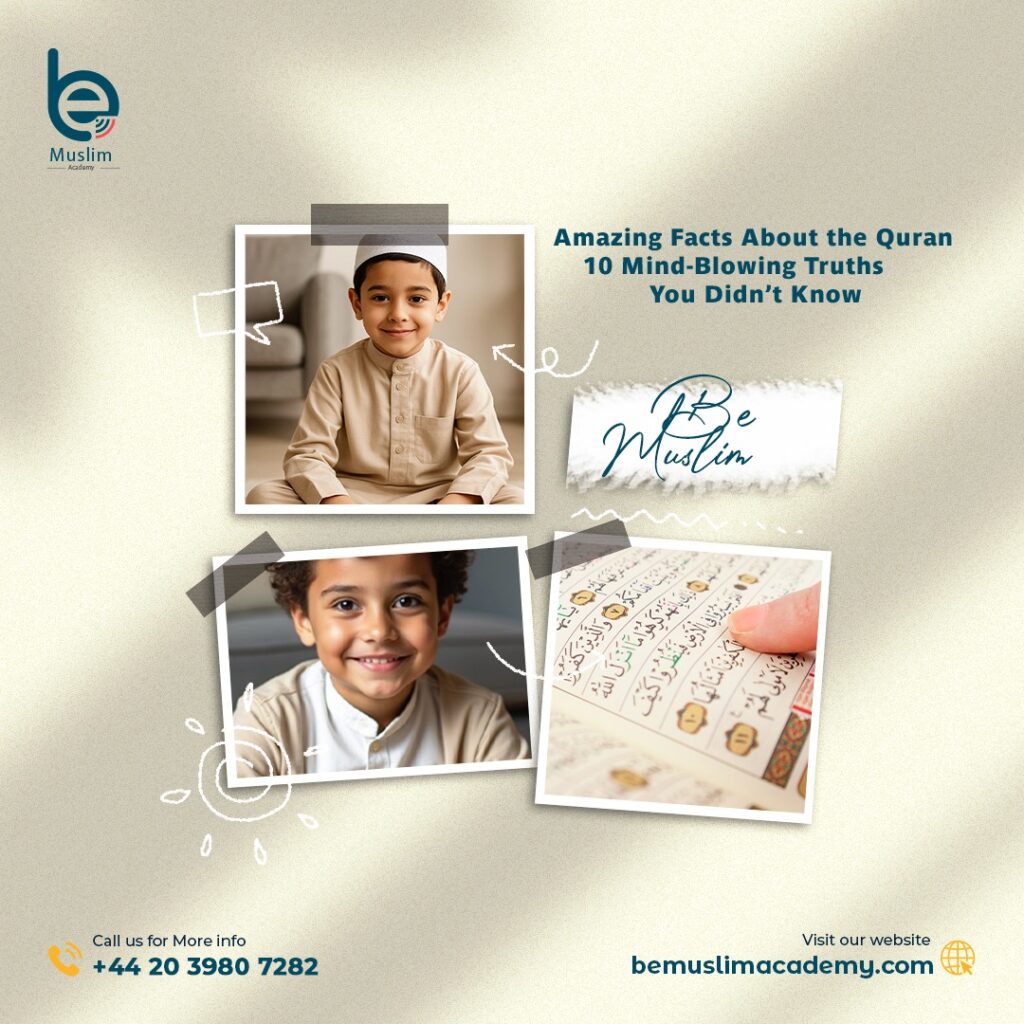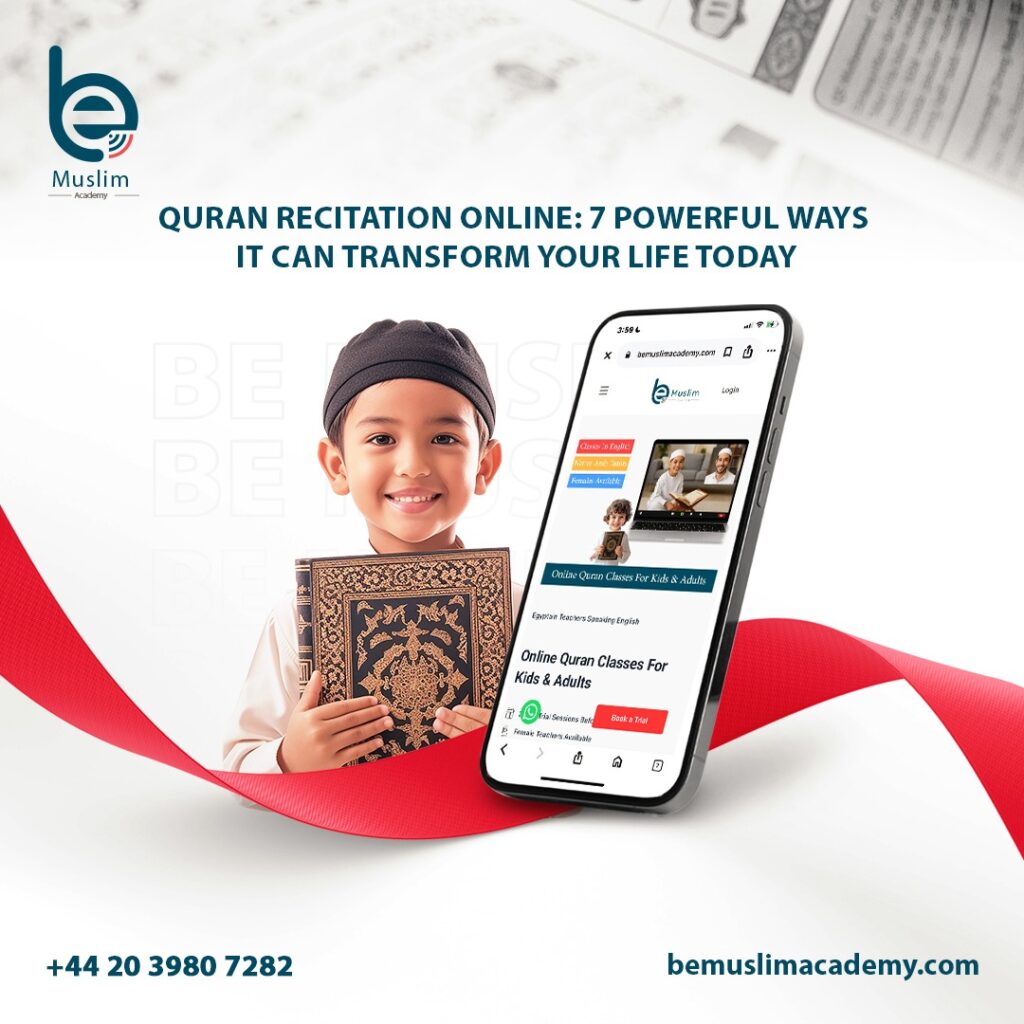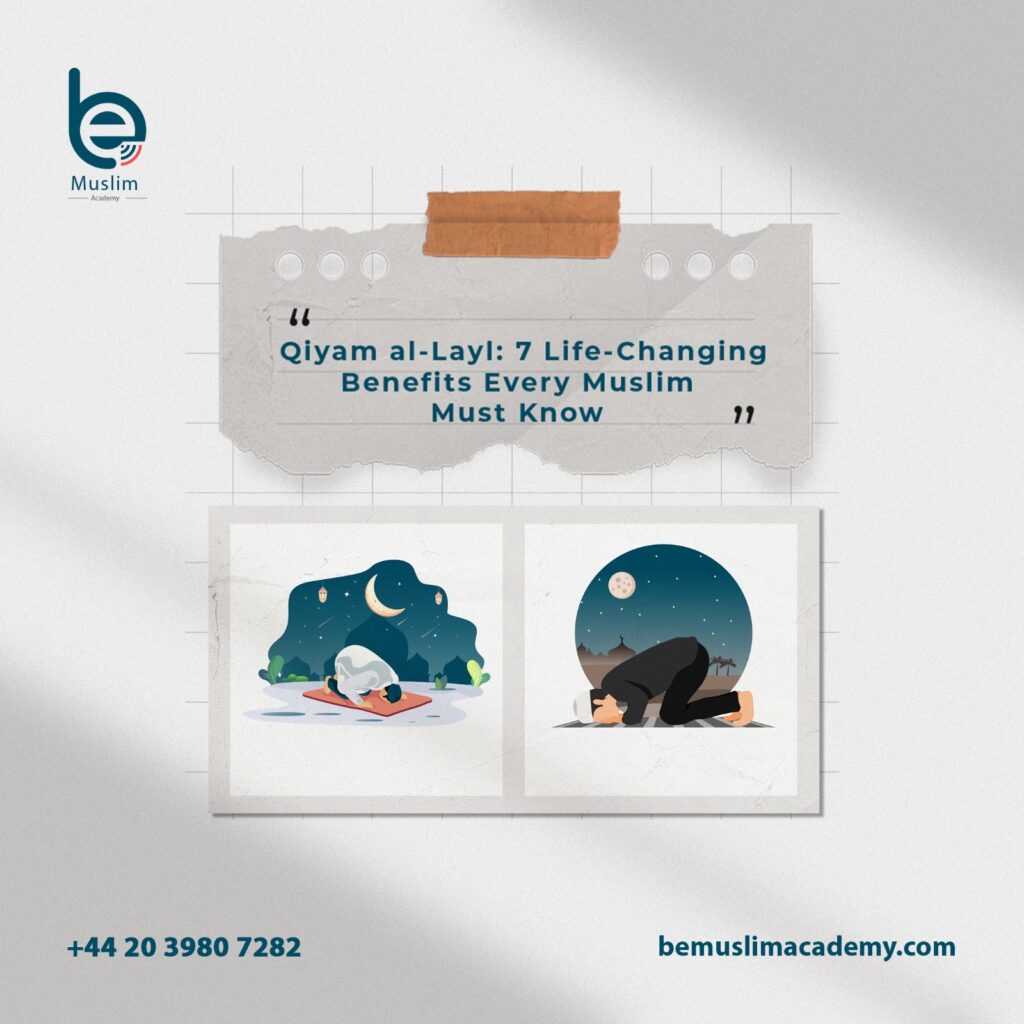Introduction: The Vital Role of Zakah in Our Life
In today’s world, where social inequality and financial hardship are growing, Zakah in our life stands as a timeless solution rooted in divine wisdom. Zakah, the third pillar of Islam, is more than a financial obligation—it’s a transformative act of worship that purifies our wealth, elevates our souls, and supports the most vulnerable in society.
For Muslims around the globe, understanding the importance of Zakah in our life is more urgent than ever in 2025. This sacred duty not only helps us fulfill our religious obligations but also brings harmony, justice, and balance to our communities. It’s a spiritual investment that ripples through every aspect of our daily lives.
Let’s dive deep into how Zakah in our life transforms us from within and builds a stronger, more compassionate Ummah.
1. Zakah in Our Life Purifies Wealth and Soul
The word “Zakah” itself means purification. By giving a portion of our wealth to those in need, we purify what remains and cleanse our hearts from greed.
Incorporating Zakah in our life helps us:
- Remove arrogance and selfishness
- Remind ourselves that wealth is a trust from Allah
- Learn to detach from materialism
The Prophet Muhammad ﷺ said:
“Wealth is not diminished by charity.” (Sahih Muslim)
This act of giving serves as a means of self-purification—purifying not just our money but our intentions and priorities. It fosters generosity, humility, and empathy.
2. Zakah in Our Life Builds Social Justice
One of the most powerful aspects of Zakah in our life is its ability to eliminate poverty and bridge the gap between the rich and the poor. Zakah ensures that the basic needs of every Muslim are met—food, shelter, clothing, and dignity.
When practiced properly, Zakah in our life builds:
- Financial balance in the Muslim community
- Opportunities for the poor to rise out of hardship
- A system of mutual care and responsibility
In an age where economic inequality is widening, implementing Zakah in our life is a divine solution to a man-made problem.
3. Zakah in Our Life Strengthens the Ummah
Imagine a community where every member feels supported, where no one is abandoned or forgotten. That’s what Zakah in our life aims to create.
When Muslims actively fulfill their Zakah duties:
- Trust within the Ummah grows
- Believers feel protected and valued
- The bonds of brotherhood deepen
Giving Zakah is not just about the transfer of wealth—it’s about emotional, spiritual, and societal support. It’s a practical form of mercy that upholds the values of unity and mutual respect.
4. Zakah in Our Life is a Test of Faith
Paying Zakah is an act of submission and trust in Allah. It challenges us to part with a portion of our wealth with the full belief that Allah will bless what remains.
By embracing Zakah in our life, we:
- Prove our obedience and trust in divine wisdom
- Let go of fear about future provisions
- Strengthen our connection with Allah
Allah says in the Qur’an:
“Take from their wealth a charity by which you purify them and cause them increase, and invoke [Allah’s blessings] upon them.” (Surah At-Tawbah 9:103)
This verse reminds us that Zakah in our life not only purifies us but brings blessings and barakah.
5. Zakah in Our Life Creates a Spiritual Habit
Zakah in our life trains us to give consistently and mindfully. Over time, giving becomes a natural and joyful part of who we are. This routine act fosters an ongoing awareness of Allah and the needs of others.
Practicing Zakah regularly helps to:
- Build spiritual discipline
- Keep material desires in check
- Foster long-term generosity and mindfulness
As we give Zakah year after year, it becomes more than an obligation—it becomes a spiritual habit, a part of our identity as Muslims.
6. Zakah in Our Life Revives the Sunnah of Community Welfare
Historically, Zakah was collected and distributed at a community level. It was an organized system that ensured fair distribution and proper care for all.
Bringing back Zakah in our life in a structured way can:
- Support local initiatives for orphans, widows, and refugees
- Fund Islamic schools, masajid, and community centers
- Provide emergency relief during disasters or crises
In 2025, the revival of this Sunnah is more crucial than ever. With digital tools and global networks, we can implement Zakah in organized and impactful ways.
7. Zakah in Our Life Prepares Us for the Hereafter
At its core, Zakah is not just about this world—it’s about the next.
Zakah in our life serves as a shield on the Day of Judgment. The wealth we give in this world becomes a light in the next.
The Prophet ﷺ said:
“Charity extinguishes sin as water extinguishes fire.” (Tirmidhi)
Giving Zakah purifies our records, pleases Allah, and prepares us to meet Him with a clean slate. It’s one of the few deeds that directly connects our finances to our eternal outcome.

Conclusion
As we’ve seen, Zakah in our life is more than a yearly payment—it’s a way of living. It purifies, strengthens, connects, and uplifts individuals and societies. When properly understood and practiced, Zakah becomes one of the most powerful forces for good in both this world and the next.
Now let’s learn How to Calculate Zakah in Our Life
Step 1: Know What Is Zakatable
Not everything you own is zakatable. To apply Zakah in our life properly, you must first identify which of your assets are eligible. These include:
- Cash (in hand or bank accounts)
- Gold and silver
- Business inventory
- Investments (stocks, bonds, crypto)
- Rental income (after expenses)
You do not pay Zakah on:
- Personal residence
- Daily essentials (food, clothes, furniture)
- Car used for personal transport
Step 2: Meet the Nisab Threshold
You are only required to pay Zakah if your wealth exceeds the Nisab—the minimum amount of wealth one must have before Zakah becomes due.
- Gold standard: 85g of gold
- Silver standard: 595g of silver
💡 In 2025, many scholars recommend using the silver Nisab to ensure more people are eligible and more recipients benefit.
Step 3: Calculate 2.5%
Once your wealth has exceeded the Nisab for one lunar year (hawl), you owe 2.5% of your zakatable assets.
Example:
If you have $10,000 saved for over one year, your Zakah is:
$10,000 × 2.5% = $250
✅ Zakah in our life becomes clearer and easier with proper planning and record-keeping.
Who Is Eligible to Receive Zakah?
The Qur’an (Surah At-Tawbah 9:60) outlines eight categories of people who can receive Zakah. Understanding these ensures your Zakah in our life is directed to those who truly need it.
1. The Poor (al-fuqara’)
Those who have nothing or very limited means of income.
2. The Needy (al-masakin)
They have some resources but not enough to cover their basic needs.
3. Zakah Administrators
Those appointed to collect and distribute Zakah.
4. New Muslims (Mu’allaf al-Qulub)
New converts to Islam who may need support during their transition.
5. Slaves and Captives
To help free those in bondage (historically, this applied to slaves; now, may include people under unjust detentions).
6. Debtors
People who are burdened with debt due to genuine necessity and can’t repay.
7. In the Cause of Allah
Those striving in dawah, Islamic education, or legitimate defense of the Ummah.
8. Travelers in Need
Stranded travelers unable to access their wealth back home.
🎯 Giving Zakah to friends or family who qualify is allowed—except for direct dependents like parents, children, or spouses.
Common Mistakes in Zakah Calculation
Incorporating Zakah in our life requires attention and sincerity. Unfortunately, many Muslims make errors that invalidate or reduce the reward of their Zakah.
Mistake 1: Delaying Zakah without a valid reason
Delaying the payment of Zakah once due is sinful. Schedule it annually and pay promptly.
Mistake 2: Paying less than 2.5%
Some miscalculate their total zakatable wealth or exclude certain assets. Always double-check your calculations.
Mistake 3: Giving Zakah to ineligible recipients
Ensure the recipient meets one of the eight Qur’anic categories. Always verify their need.
Mistake 4: Thinking Zakah is optional
Unlike voluntary charity (Sadaqah), Zakah in our life is obligatory. Ignoring it knowingly is a major sin.
Mistake 5: Not purifying business wealth
Business owners often forget to pay Zakah on inventory and profits. Regular audits are essential.
✅ Correcting these errors ensures the Zakah in our life fulfills both the letter and spirit of the law.
Zakah in Our Life for Business Owners
Entrepreneurs and professionals must approach Zakah in our life with an added layer of diligence. Here’s how:
- Pay Zakah on stock-in-trade (goods you’re selling)
- Include outstanding receivables (debts you expect to collect)
- Exclude business expenses and liabilities
Example:
If your store’s inventory is worth $20,000 and you expect $5,000 in receivables, your zakatable amount is $25,000.
Zakah = 2.5% × $25,000 = $625
🧾 Business Zakah supports transparency, integrity, and barakah in commerce.
Using Modern Tools to Manage Zakah in Our Life
In 2025, you can streamline your Zakah obligations through:
- Online Zakah calculators
e.g., National Zakat Foundation UK Calculator - Islamic finance apps
- Automated reminders
- Zakah distribution platforms
These resources empower you to keep Zakah in our life organized, accurate, and consistent.
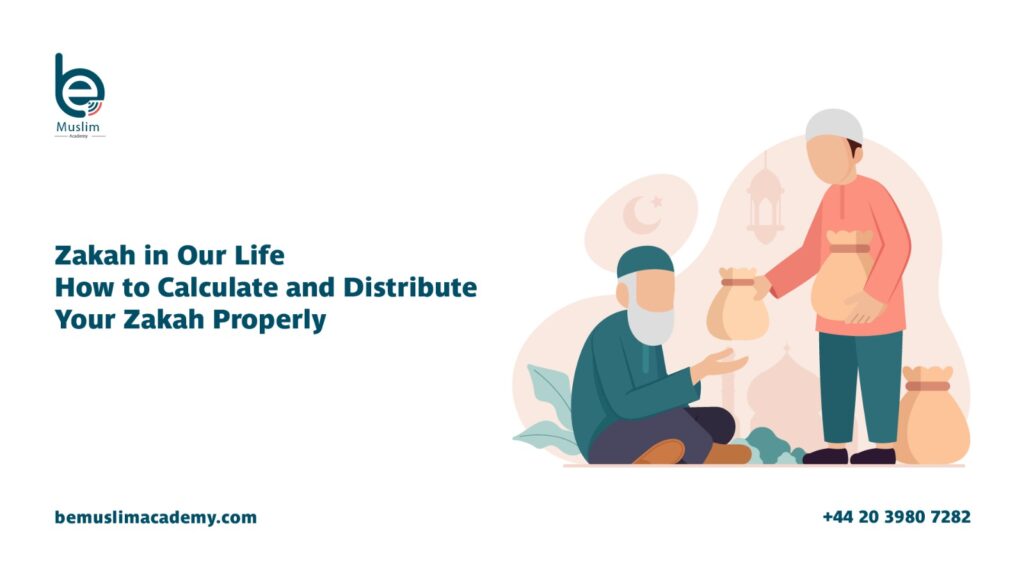
Conclusion
The spiritual reward of Zakah is immense—but only when practiced correctly. Calculating Zakah precisely, giving it to rightful recipients, and avoiding common mistakes are essential steps in upholding this divine pillar.
Incorporating Zakah in our life with sincerity, structure, and knowledge brings spiritual clarity, social upliftment, and divine reward.
6. Zakah in Our Life Strengthens Communities and Reduces Inequality
One of the most remarkable aspects of Zakah in our life is its ability to create a more balanced and compassionate society. Beyond the personal spiritual benefits, Zakah is a lifeline for the underprivileged and a remedy for social disparities.
When every eligible Muslim contributes Zakah in our life, the wealth gap narrows. Those in need — whether they are orphans, widows, students, or refugees — can receive crucial support. It offers them a second chance, helping them rise from poverty and live with dignity.
In this modern world of inflation and financial instability, the role of Zakah in our life has never been more relevant. It enables Muslims to combat poverty not just with charity but with responsibility. This obligatory act fosters a sense of brotherhood and equality within the Ummah.
Islamic scholars note that one of the major signs of societal breakdown is the hoarding of wealth and the neglect of the poor. But when Zakah in our life is implemented correctly, we build stronger, more unified communities where everyone has access to essentials — food, shelter, education, and healthcare.
Zakah also prevents extreme concentration of wealth. It redistributes money from the rich to the poor, ensuring a balanced circulation of wealth, and encouraging economic justice — a concept Islam introduced long before modern economic theories.
“Take, [O Muhammad], from their wealth a charity by which you purify them and cause them increase.” — Surah At-Tawbah (9:103)
This verse illustrates how Zakah in our life purifies not just the giver but also uplifts the entire society.
7. Zakah in Our Life Has an Economic Multiplier Effect
Many assume that giving away a portion of wealth will reduce personal resources. In reality, Zakah in our life acts as a multiplier. It stimulates the economy by channeling stagnant wealth into the hands of those who will use it immediately.
Poor families receiving Zakah can now purchase food, clothing, or pay for education. This spending boosts local businesses and fosters economic growth. Entrepreneurs can receive assistance to start small ventures. Students can afford to stay in school and build a better future.
This chain reaction illustrates how Zakah in our life is not just a moral obligation — it’s also a practical economic strategy.
When governments or NGOs apply Zakah systems properly, we see tangible results:
- Decreased crime rates
- Improved literacy levels
- Greater healthcare access
- Empowerment of women and children
In some countries, like Malaysia and Saudi Arabia, government-led Zakah programs have had measurable success in social development. Zakah in our life helps convert aid into empowerment.
If Muslims worldwide gave their Zakah correctly, estimates suggest hundreds of billions of dollars could be distributed annually. This figure has the power to erase poverty in many Muslim nations.
Real-Life Example: How Zakah Changed One Family’s Life
Let’s meet Fatima, a single mother of three in Kenya. Living in extreme poverty, she couldn’t afford school fees for her children. Through an Islamic relief organization, she received Zakah from Muslims in the UK.
With the funds, Fatima started a small tailoring business. Within a year, she was not only feeding her children and sending them to school, but she also began donating to her local masjid.
This real-life case highlights how Zakah in our life empowers people beyond temporary aid — it provides sustainability and dignity.
Modern Platforms and Technology to Simplify Zakah in Our Life
Technology has made practicing Zakah in our life easier than ever before. Numerous Islamic platforms now offer:
- Zakah calculators to help you determine the amount
- Secure payment gateways for donations
- Mobile apps to track your giving history
- Automated reminders for your Zakah due dates
Online Islamic institutions such as:
- LaunchGood
- Muslim Hands
- Penny Appeal
offer trusted platforms to give Zakah globally.
By using these services, Muslims can give their Zakah transparently, efficiently, and to verified recipients — all while maintaining privacy.
Be Muslim Academy also educates students on how to calculate and fulfill Zakah correctly. We believe that Zakah in our life is more than a number — it’s a duty and a means to draw nearer to Allah.
Zakah in Our Life and the Post-COVID Economy
In a post-pandemic world, many families are still recovering from job loss, inflation, and health expenses. Zakah in our life can be the bridge between despair and survival for many of them.
During COVID-19, numerous Islamic charities saw a rise in Zakah contributions — a testament to the compassion of the Ummah. This generosity helped countless families around the globe.
Even now, as economies rebuild, Zakah in our life continues to offer a sustainable and faith-centered approach to social care.
Zakah in Our Life and the Younger Generation
Teaching our youth about Zakah in our life is essential. At Be Muslim Academy, we’ve seen how children who understand the purpose of Zakah grow up with empathy and responsibility.
Encouraging kids to give small amounts, even from their allowance, nurtures hearts full of generosity. Youth-friendly courses and digital tools are now available to help them understand Zakah in simple ways.
Parents can lead by example — involving children in choosing causes to support or helping them calculate their own Zakah when they receive gifts or savings.
This practice cultivates a lifetime of giving — ensuring the message of Zakah in our life passes to future generations.
Final Thoughts: The Enduring Power of Zakah in Our Life
As we conclude this series, it’s clear that Zakah in our life is not merely an annual ritual — it is a foundational pillar that shapes our hearts, our communities, and our world.
From:
- Purifying wealth
- Supporting the poor
- Boosting economic flow
- Encouraging gratitude
- Unifying the Ummah
…Zakah in our life is a divine system of fairness, responsibility, and growth.
Let’s commit to understanding it, calculating it properly, and giving it with sincerity. Whether you’re a new Muslim or someone seeking to deepen your practice, remember that giving Zakah is an act of worship and a step toward earning Allah’s pleasure.
🔗 Internal Link Suggestions:
